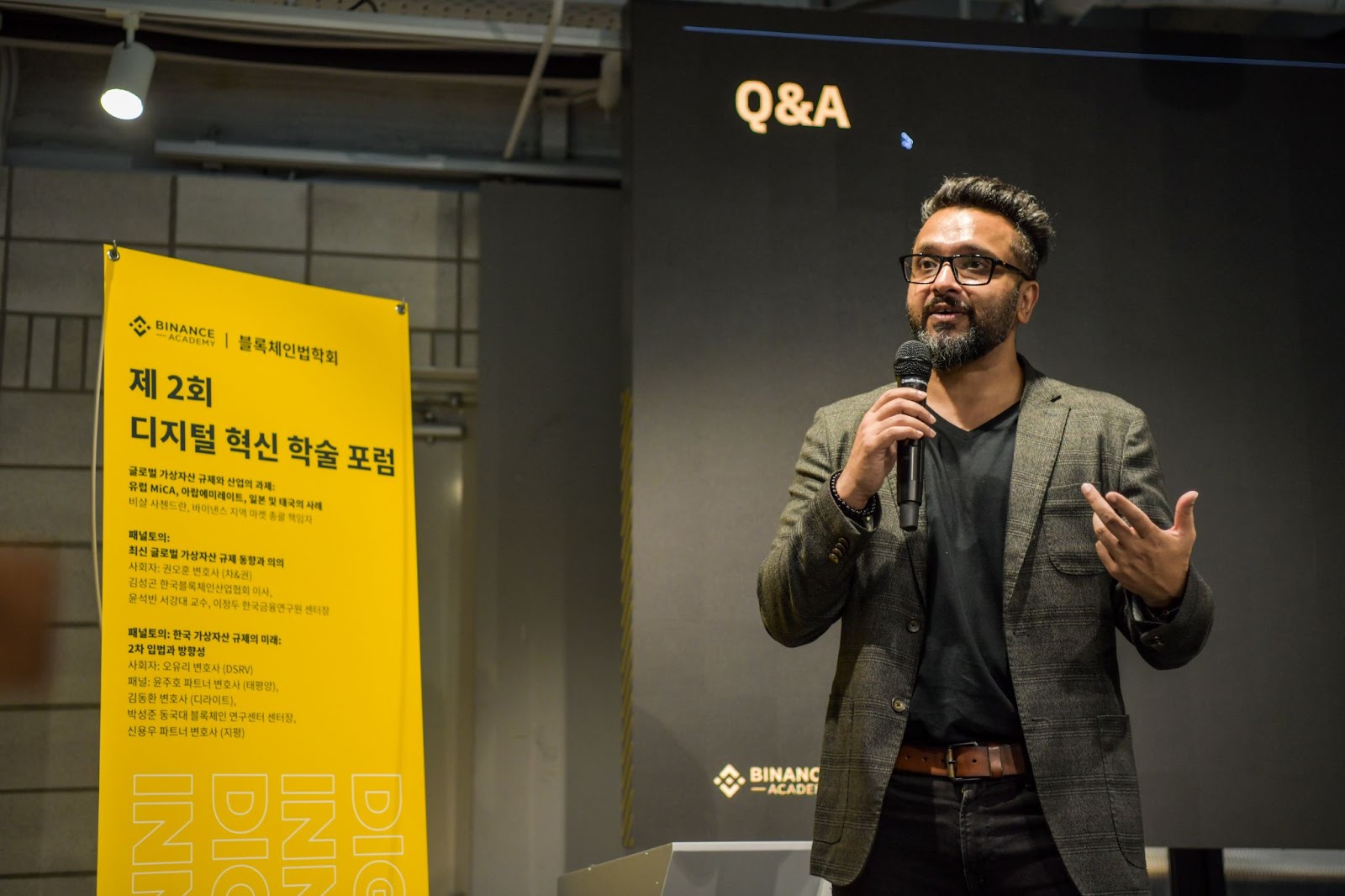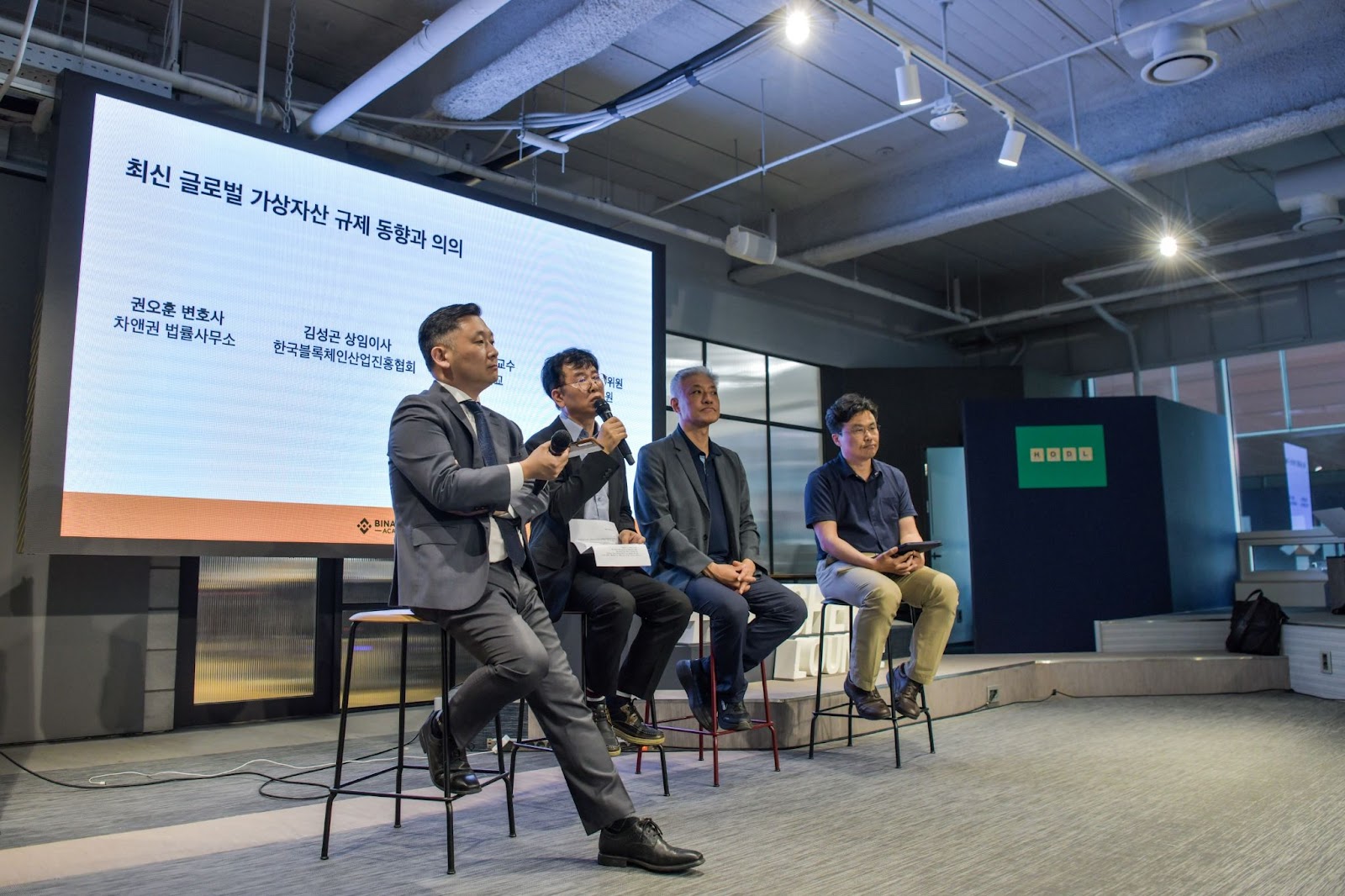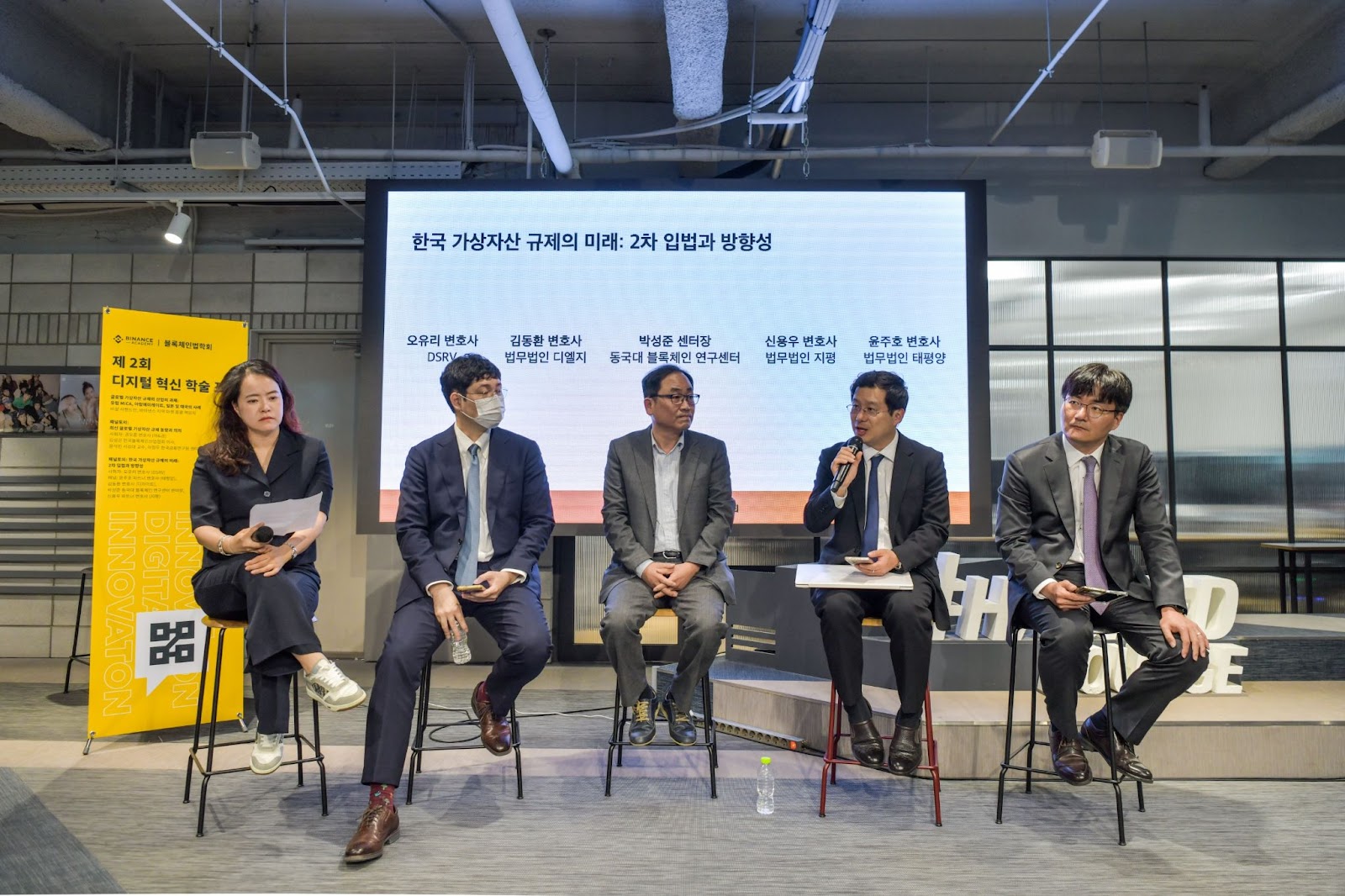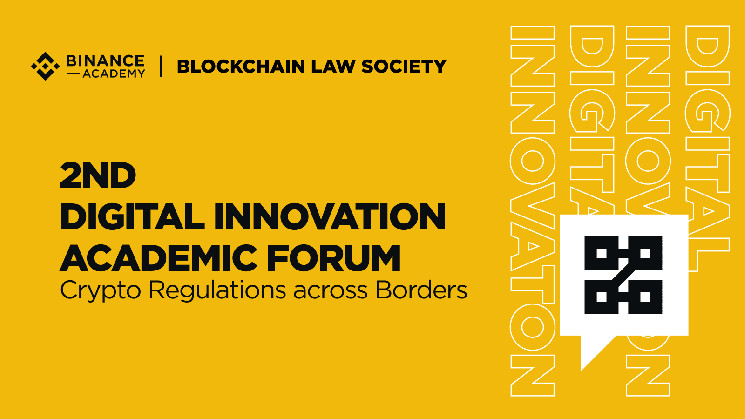Main Takeaways
-
Vishal Sacheendran, Head of Regional Markets at Binance, took center stage at the second Digital Innovation Academic Forum (DIAF) that took place on May 29 in Seoul, Korea, and was co-hosted by Binance Academy and Blockchain Law Society.
-
In his keynote speech, Sacheendran highlighted how diverse regulatory frameworks across regions like the EU, Japan, and Thailand can add vital perspectives to the global debate on the shape of a harmonized crypto regulation.
-
Panel discussions led by industry leaders underscored the importance for businesses to comply while remaining adaptable in a shifting regulatory environment, with a focus on finding the balance between security and innovation.
The global landscape of digital-asset regulation came under spotlight at the second Digital Innovation Academic Forum (DIAF), a collaborative initiative co-hosted by Binance Academy and Blockchain Law Society. The forum brought together industry leaders who shared their insights and expert perspectives, diving deep into subjects ranging from global regulatory harmonization to the legal treatment of digital assets in specific jurisdictions. With Binance’s Vishal Sacheendran setting the tone of the discussion as a keynote speaker, the forum became a venue of profound expert conversations around the current state and future of the crypto industry.
Keynote: A Closer Look at Global Crypto Regulation

The second DIAF opened with a keynote that offered an examination of global regulatory frameworks for digital assets, focusing on policy advancements in jurisdictions like the EU, UAE, Japan, and Thailand.
Vishal Sacheendran, Head of Regional Markets at Binance, took center stage to highlight the diversity of existing policies and their implications, ranging from the Markets in Crypto Assets (MiCA) in the EU to the unique approaches adopted in Japan and Thailand. He explained how each region’s approach, tailored to their specific circumstances, contributes vital perspectives to the evolving global regulatory landscape.
“Undoubtedly, investors will migrate towards regions with a robust regulatory foundation,” Vishal concluded, articulating one of the key incentives for policymakers to get digital-asset regulation right.
Panel 1: Global Regulatory Updates and Hurdles

(from left to right: Ohoon Kwon, Attorney at Cha & Kwon; Seong Gon Kim, Director at Korea Blockchain Industry Promotion Association; Seokbin Yoon, Professor by Special Appointment at Sogang University; Jeong Doo Lee, Senior Research Fellow at Korea Institute of Finance)
The first panel of the Forum brought together legal professionals, researchers, and academics with blockchain industry expertise to discuss the current state of global crypto regulation and the challenges involved.
Panel members agreed that crypto businesses must adhere strictly to the existing regulatory requirements while being ready to adapt to the evolving rules. Participants highlighted the importance of implementing high standards in the areas of identity verification (KYC) and anti-money-laundering (AML) protocols as companies navigate the fine line between compliance and innovation in this dynamic market.
As the dialogue shifted to the implementation of the MiCA regulation across the EU, some described the European legislation as an ideal example of the kind of consistent, clear regulatory frameworks that the crypto market needs to both safeguard investors and foster growth and innovation.
When reflecting on the local Korean environment, panelists observed that for Korea’s swiftly growing digital economy to flourish, regulators must carefully balance security, transparency, and the flexibility needed to encourage novel developments.
The experts concluded on the note that, if executed wisely, well-structured crypto regulation could propel Korea’s crypto industry significantly, leading other nations in the digital economic transformation.
Panel 2: The Future of Korean Regulation: Identifying Gaps and Proposing Fixes

(from left to right: Yuri Oh, Attorney at DSRV; Dong Hwan Kim, Partner at DLG; Seongjun Park, Professor at Dongguk University Blockchain Research Center; Yong Woo Shin, Partner at Jipyong; Juho Yoon, Partner at BKL)
The discussion of the day deepened as the panelists considered the complicated relationship between regulation and innovation. It became clear that careful balance is needed to foster a robust ecosystem that simultaneously ensures user protection and offers flexibility necessary to stimulate growth and innovation in Korea.
The discussion shifted to the questions surrounding regulatory reporting for crypto. Laying emphasis on the unique value virtual assets provide, especially for cross-border transactions, participants proposed urgent reconsideration of the Foreign Exchange Transaction Act – legislation, designed to ease foreign transactions while maintaining the balance of payments and stabilizing currency value – to address gaps in coverage of digital assets.
In another strand of the discussion, experts called for broadening the scope of Korean crypto regulation to include additional aspects of the virtual asset lifecycle, such as initial coin offerings (ICOs), security token offerings (STOs), custody and storage, governance, and management. The debate extended to governance structures and whether existing financial authorities should oversee this vast digital landscape, or whether a new specialized digital agency could address its needs more efficiently.
By exploring fresh perspectives and pointing out where existing frameworks fall short, the discussion provided valuable insights into shaping the future of virtual assets in Korea.
Innovation and Regulation: A Delicate Balance
The second DIAF hosted conversations that underscored the importance of balance, flexible regulatory frameworks, and user-centric approaches in crypto regulation. Throughout its discussions, the vision of an inclusive regulatory environment that encourages innovation while protecting investors remained at the center.
The nations leading the process of digitization, including Korea, must address many challenging issues as they shape the future of the digital economy. Staying updated on these future-oriented conversations becomes increasingly crucial as we step further into the future of financial technology. Stay tuned for our next DIAF for more insightful discussions and groundbreaking ideas from the frontiers of the crypto world!
Further Reading
-
Erasing Borders: Globally Harmonized Regulation for the Digital Economy
-
Binance TH by Gulf Binance Now Open to All Eligible Users
-
Binance FZE Receives a VASP Licence from Dubai’s Virtual Assets Regulatory Authority
 binance.com
binance.com
